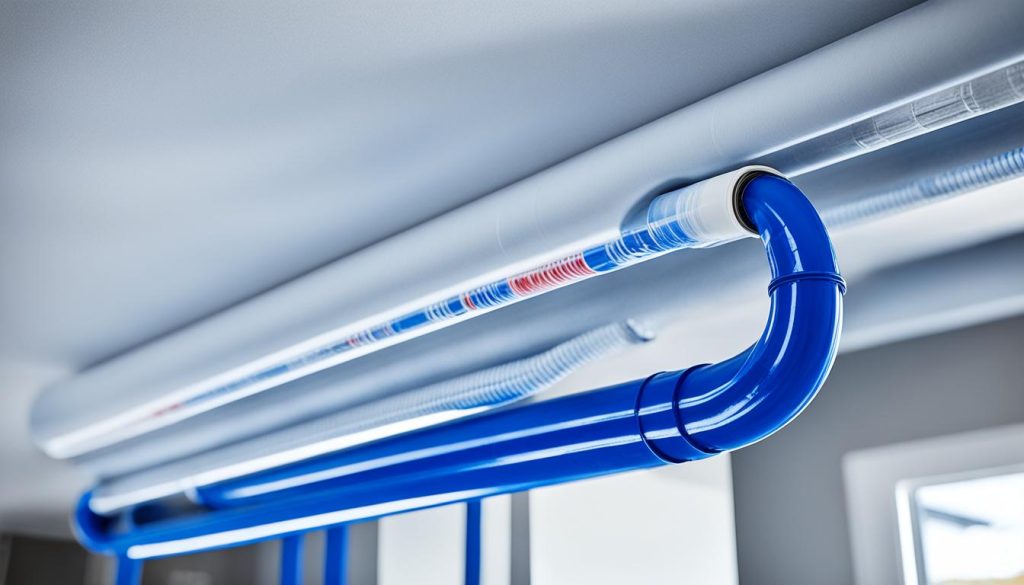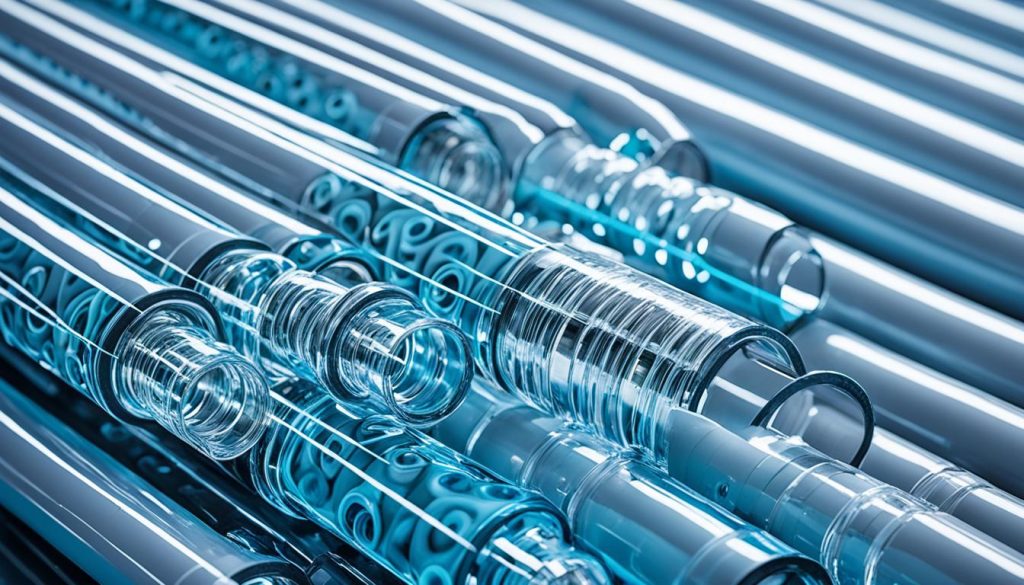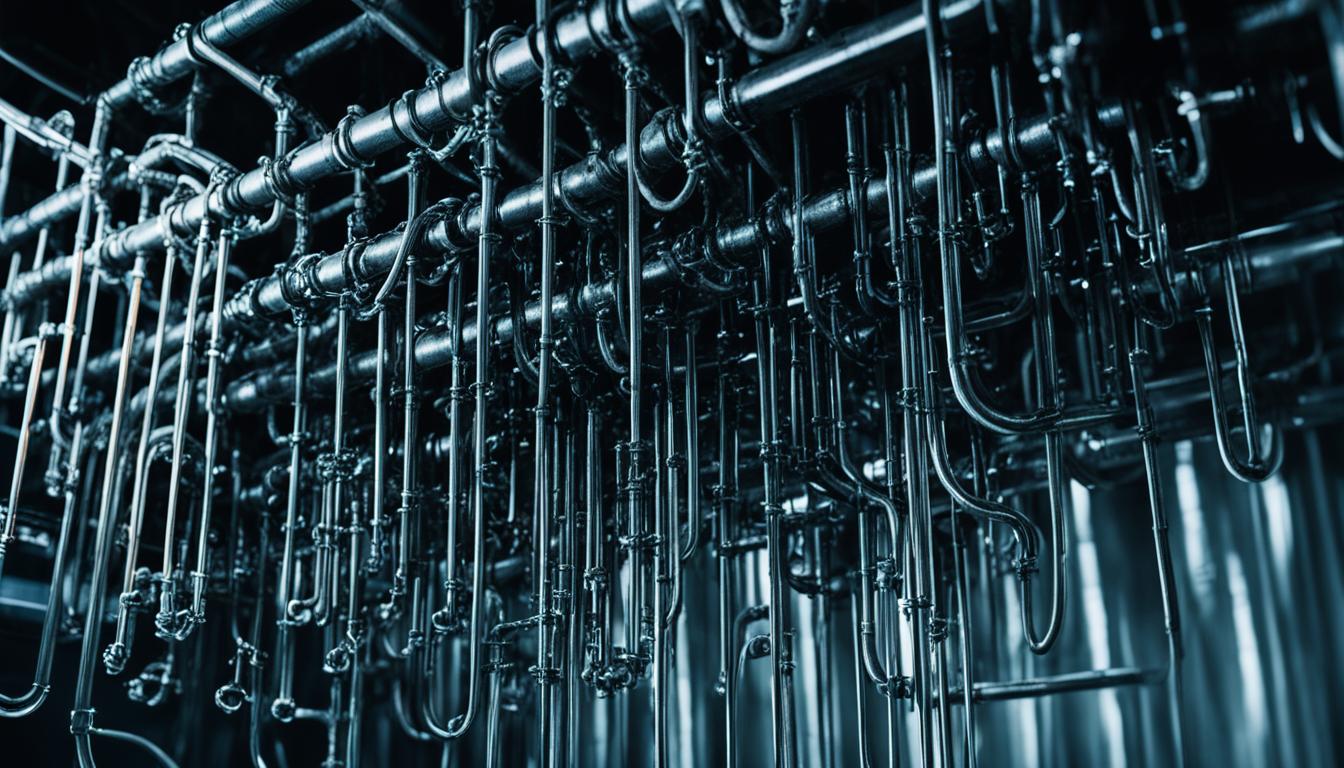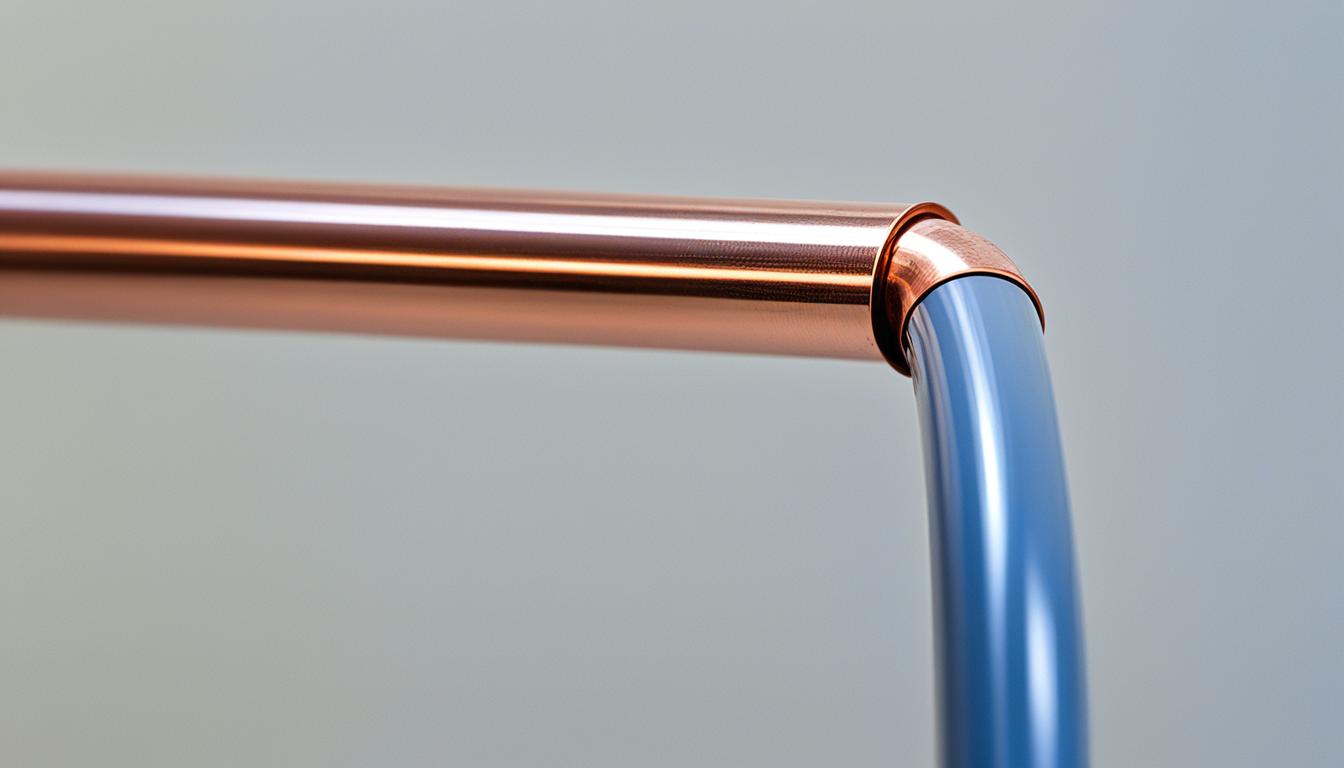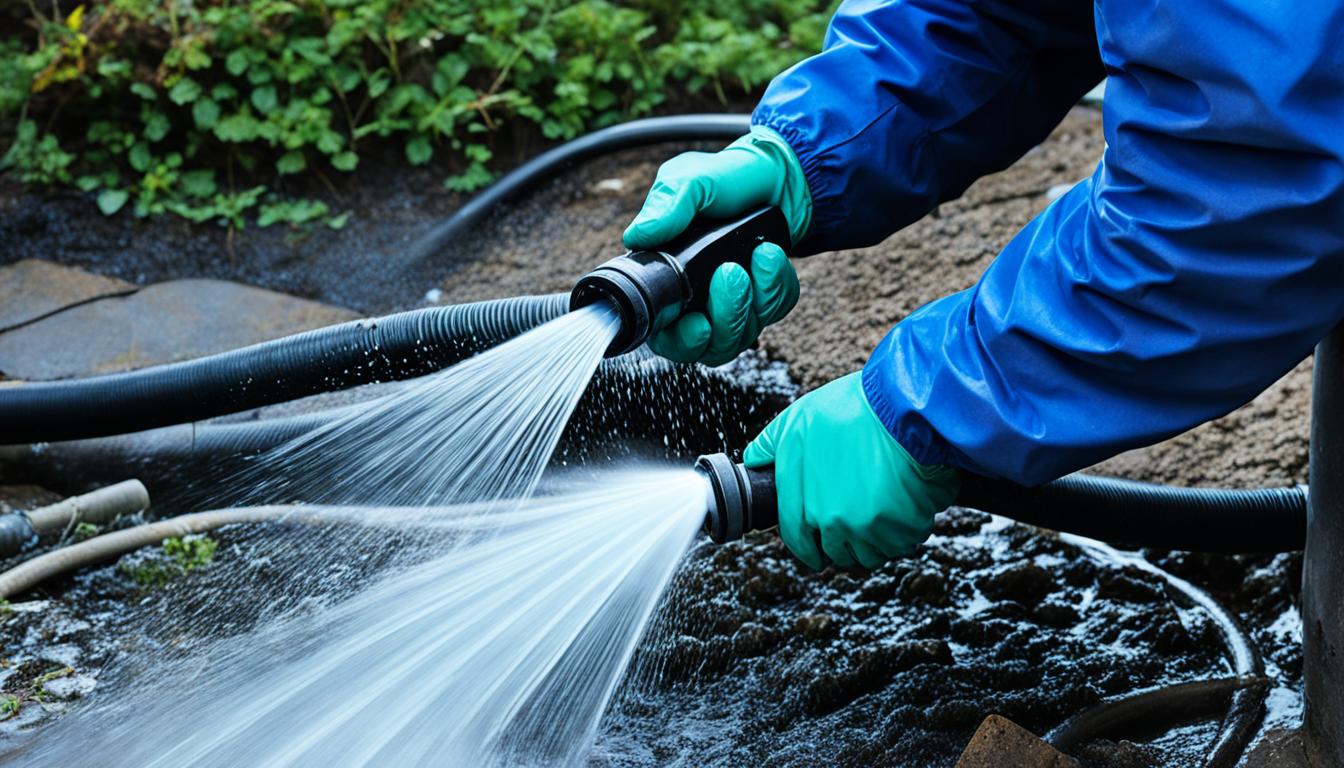Top Home Water Supply Pipes Revealed | Best Pipe
Did you know that the choice of water supply pipe in your home can have a significant impact on the overall quality and durability of your plumbing system? It’s true! The right pipe can ensure a reliable water supply for years to come, while the wrong one can lead to leaks, clogs, and costly repairs.
When it comes to selecting the best pipe for water supply in your home, there are several factors to consider, such as the material, application, and location. Each type of pipe has its own advantages and considerations, making it crucial to choose the one that suits your specific needs.
So, whether you’re renovating your home or building a new one, it’s essential to make an informed decision about your water supply piping. In this article, I will reveal the top home water supply pipes that are known for their quality, durability, and performance. By understanding the pros and cons of each type, you’ll be able to select the best pipe for your residential water supply needs.
Key Takeaways:
- Choosing the right water supply pipe is crucial for a reliable and long-lasting plumbing system in your home.
- Factors such as material, application, and location should be considered when selecting a pipe.
- Stainless steel pipes are ideal for corrosion-prone areas like coastal regions.
- PEX piping offers flexibility, minimal maintenance, and leak-free performance, but may not be suitable for outdoor use.
- Copper pipes are durable, corrosion-resistant, and suitable for hot and cold water supply.
- PVC pipes are commonly used for potable water supply and sewage applications.
- Galvanized pipes are no longer recommended for residential drinking water supply due to rust buildup.
- Brass pipes are rust-resistant and ideal for hot-water and large distribution systems.
Stainless Steel Pipe
When it comes to choosing a pipe that can withstand corrosive environments, stainless steel pipes are an excellent option, especially in coastal areas. These pipes are known for their corrosion-resistant properties, making them ideal for areas with high humidity and exposure to saltwater. Whether you need a flexible or rigid pipe, stainless steel offers both options to meet your specific needs.
Connecting stainless steel pipes to other types of pipes may require special couplings due to the difference in material. These couplings ensure a secure and leak-proof connection between the stainless steel pipe and the adjoining pipe. It’s important to use the appropriate couplings recommended for stainless steel pipes to maintain the integrity of the overall plumbing system.
One of the key advantages of stainless steel pipes is their durability. They have a long lifespan and can withstand harsh conditions, making them a reliable choice for residential and commercial applications. While stainless steel pipes may come at a higher upfront cost compared to other pipe materials, their longevity and resistance to corrosion make them a cost-effective investment in the long run.
Stainless steel pipes offer numerous benefits for various applications. Whether you’re building a new home, renovating your plumbing system, or need pipes for an industrial project, stainless steel is a versatile and reliable choice. With their corrosion resistance, durability, and flexibility, stainless steel pipes provide a strong and lasting infrastructure for water supply and other plumbing needs.
PEX Piping
PEX piping is a versatile and popular choice for residential and small business applications. As a flexible plastic piping solution, PEX offers numerous advantages that make it an attractive option for water supply systems.
- Durability: PEX piping is highly durable and resistant to cracking and corrosion, ensuring a long-lasting water supply system for your home or small business.
- Minimal Maintenance: With its leak-free properties, PEX piping reduces the need for constant monitoring and repair. This translates to cost savings and peace of mind for homeowners and small business owners alike.
- Fast Installation: PEX piping is known for its ease of installation, saving both time and money during the construction or renovation process. Its flexibility allows for effortless routing around obstacles, making it a preferred choice for tight spaces.
- UV Resistance: While PEX piping offers many benefits, it is important to note that it is not recommended for outdoor applications. The exterior plastic layer of PEX piping can be damaged by prolonged exposure to UV rays. Therefore, it is crucial to adhere to recommended usage guidelines and avoid outdoor installations.
If you are considering using PEX piping for your residential or small business water supply system, it is essential to check local guidelines and regulations. PEX piping may not be approved for use in all areas, so it is crucial to ensure compliance with local building codes before installation.
To provide a visual reference, the image below showcases the flexibility and versatility of PEX piping:
Copper Pipes
Copper pipes are a staple in traditional plumbing systems due to their durability and corrosion resistance. They are widely used for both hot and cold water supply in residential settings. Copper is known for its excellent heat transfer properties, making it an ideal choice for hot water distribution.
Working with copper pipes is relatively straightforward, but it does require soldering to ensure proper connections. Additionally, copper pipes may require additional fittings to accommodate changes in direction or to connect to other plumbing components.
One of the key advantages of copper pipes is their long lifespan. When properly maintained, copper pipes can last over 50 years, making them a reliable choice for residential water supply systems.
Below is a table summarizing the key features of copper pipes:
| Feature | Advantages |
|---|---|
| Corrosion Resistance | Copper pipes are highly resistant to corrosion, ensuring a long lifespan and clean water supply. |
| Durability | Copper pipes are strong and durable, capable of withstanding high water pressures and external forces. |
| Hot and Cold Water Compatibility | Copper pipes are suitable for both hot and cold water supply, making them versatile for various plumbing needs. |
| Soldering Requirement | Proper soldering techniques are needed to secure connections and prevent leaks. |
| Additional Fittings | Additional fittings may be required to accommodate changes in direction or connect to other plumbing components. |
Overall, copper pipes offer a reliable and time-tested solution for residential water supply systems. Their corrosion resistance and compatibility with hot and cold water make them a popular choice among homeowners and plumbers alike.
PVC Pipes
When it comes to home plumbing, PVC pipes are a popular choice for a variety of applications. These versatile pipes are commonly used for both cold and hot potable water supply, as well as sewage and drain systems. Whether you’re looking to install a new water line in your home or need to replace an old pipe, PVC pipes offer a reliable and cost-effective solution.
One of the key advantages of PVC pipes is their ability to handle both cold and hot potable water. This makes them suitable for a wide range of residential plumbing needs. PVC pipes are also commonly used in sewage and drain applications, thanks to their durability and resistance to chemicals.
PVC pipes come in different configurations and thicknesses, depending on the specific application. To ensure the proper functioning of your water supply system, it’s essential to choose the appropriate type of PVC pipe. There are specific standards for pressure water pipes, sewer pipes, and storm drainage systems, so it’s important to select a pipe that meets the requirements of your project.
PVC pipes designed for potable water applications are usually labeled with NSF-PW or NSF-61. These labels indicate that the pipe meets the necessary health effects requirements, ensuring safe and clean water for your home.
| Advantages of PVC Pipes | Disadvantages of PVC Pipes |
|---|---|
|
|
Galvanized Pipes
Galvanized pipes were commonly used in the past but are now less frequently used in residential settings. They are prone to rust buildup inside small diameter pipes, which can affect water quality. Galvanized pipes are still used for transporting non-potable water or grey water, as well as in outdoor gas applications. It is important to note that galvanized pipes are not suitable for carrying drinking water due to the risk of rust and corrosion.
Brass Pipes
When it comes to choosing the best pipes for your home’s water supply system, brass pipes are a top-notch option. Made of a copper alloy, brass pipes offer exceptional rust resistance, ensuring a long-lasting and reliable plumbing solution. Brass pipes, particularly those made of red brass, containing 85 percent copper, are known for their superior performance.
One of the key advantages of brass pipes is their ability to withstand hot water and large distribution systems without rusting on the interior. This makes them an excellent choice for homes that require hot water supply and have extensive distribution networks. Brass pipes are also easier to thread than steel pipes, which adds to their convenience during installation.
Brass pipes find their application in various areas, including pump fittings, water tanks, and wells. Their durability and resistance to rust make them suitable for both residential and commercial plumbing systems. Additionally, brass pipes are available in lengths of up to 12 feet, offering flexibility in design and installation.
Source Links
- https://todayshomeowner.com/plumbing/piping/
- https://www.thespruce.com/guide-on-how-to-choose-the-right-plumbing-pipe-844858
- https://www.neit.edu/blog/the-5-types-of-plumbing-pipes
- Investing Wisely: How Windows & Doors in Boost Property Value and Financial Health - April 24, 2025
- The Financial Impact of Personal Injuries: Why Legal Help Matters for Business Owners - April 16, 2025
- The Hidden Financial Costs of Domestic Assault: What Business Owners Need to Know - April 16, 2025
